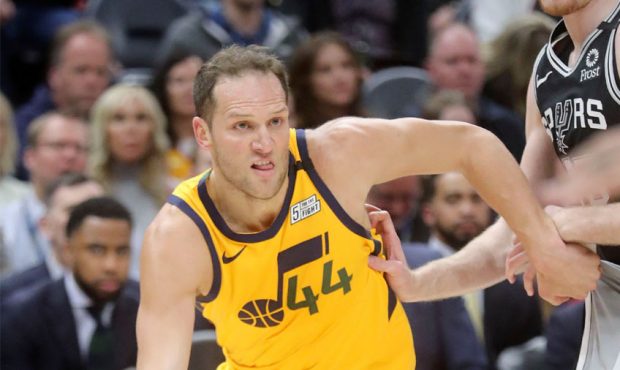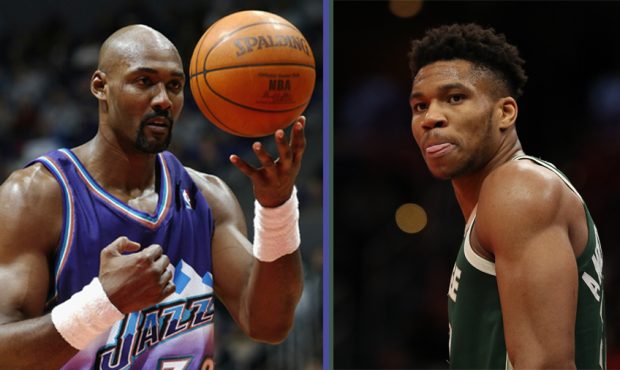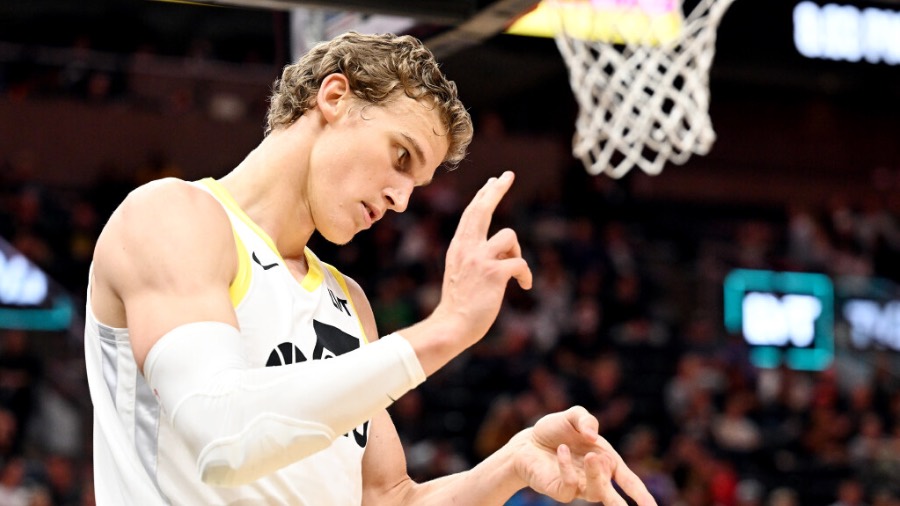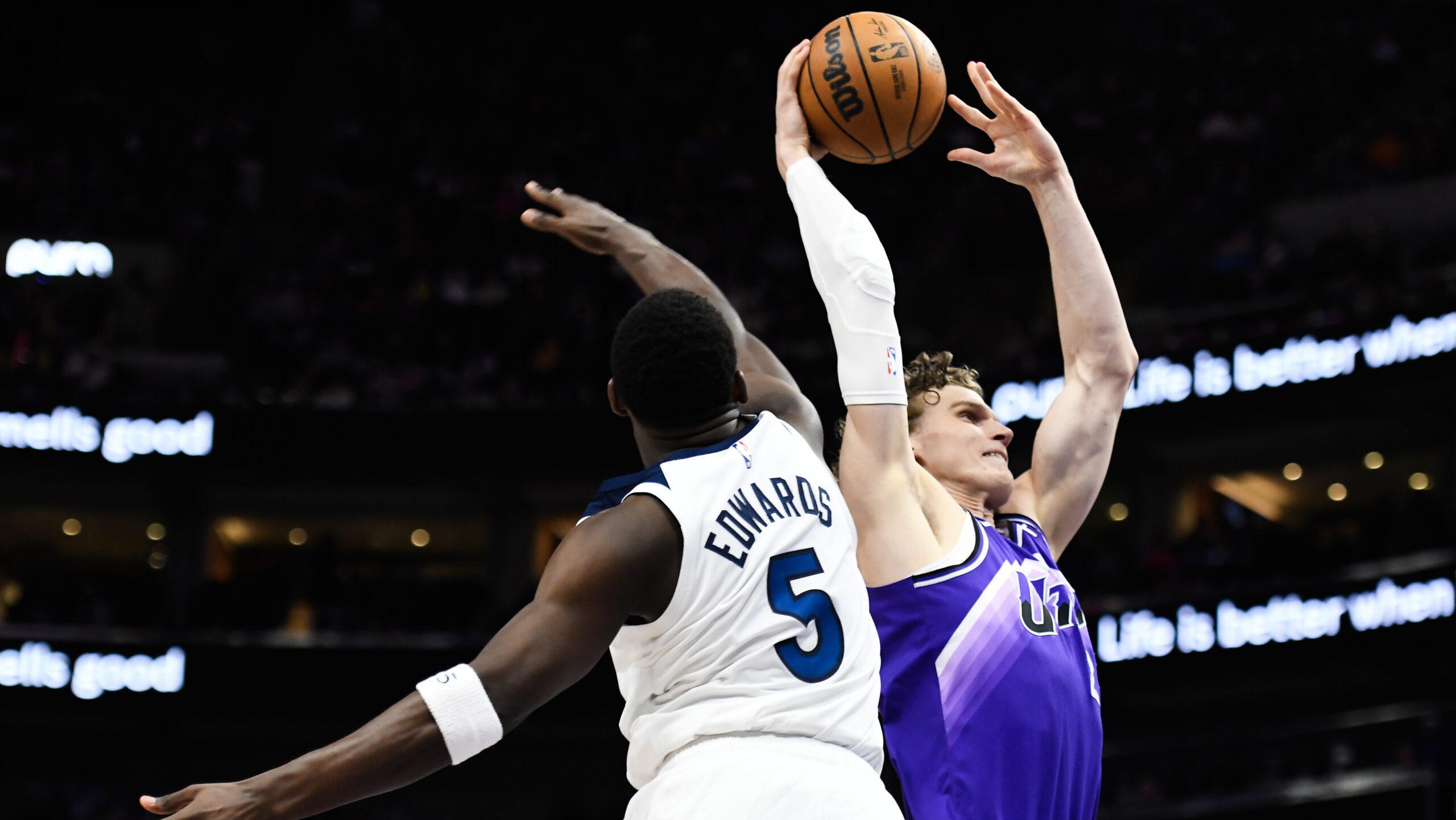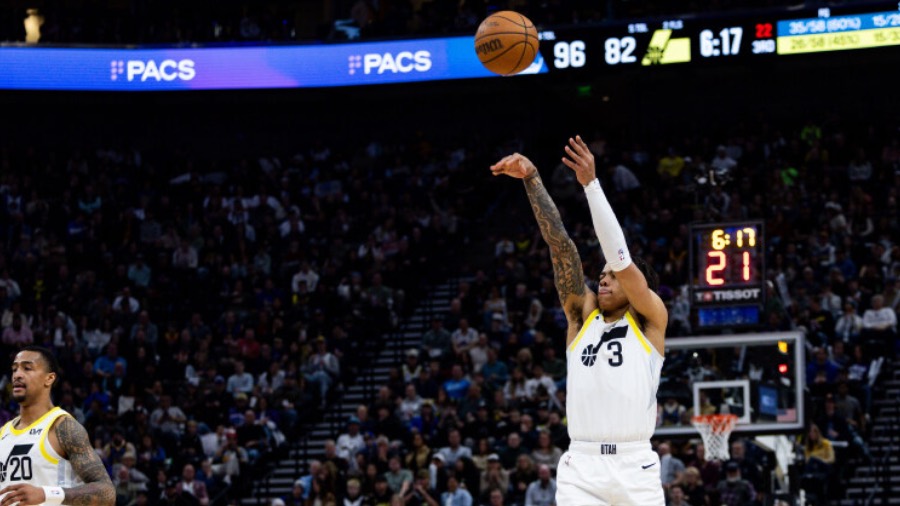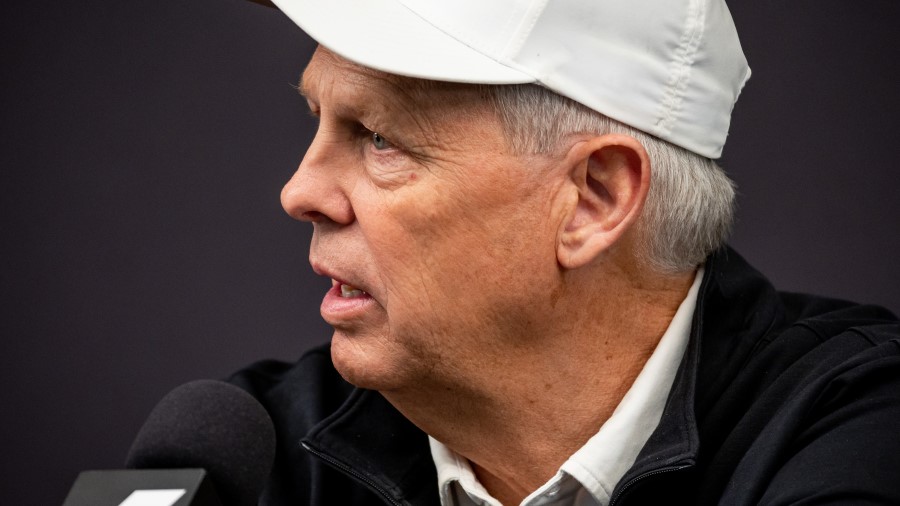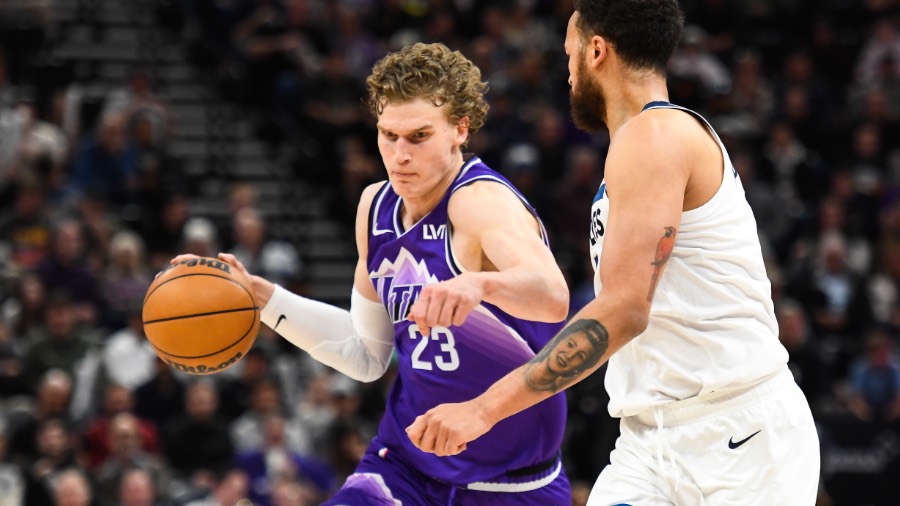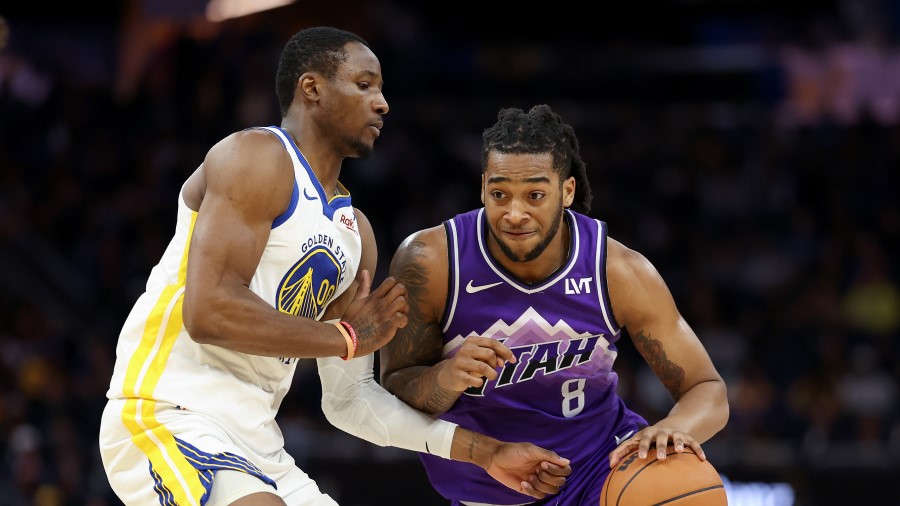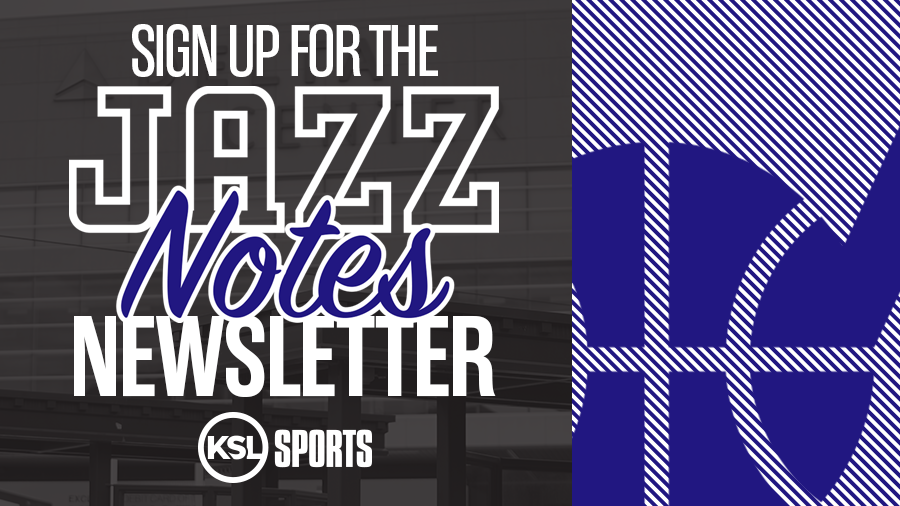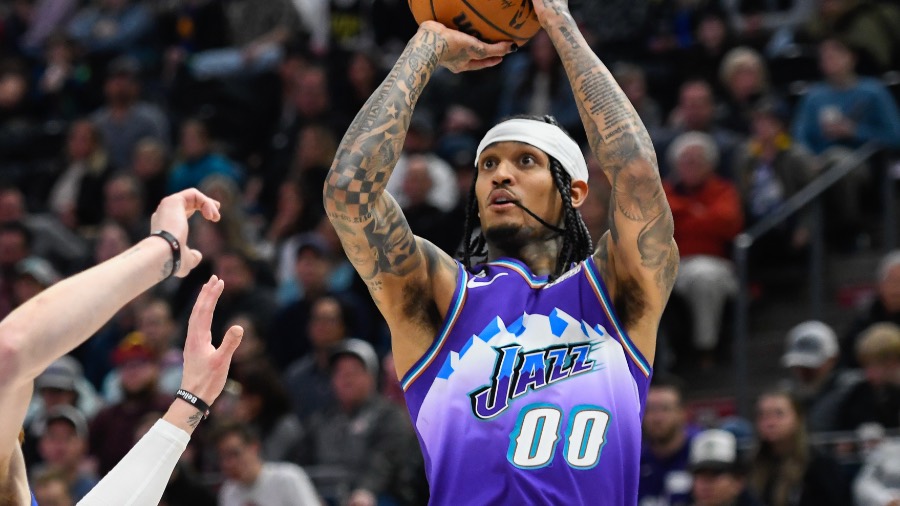Coronavirus Financial Impact: Could Jazz Lose Mitchell And Gobert?
May 14, 2020, 5:16 PM | Updated: 5:18 pm
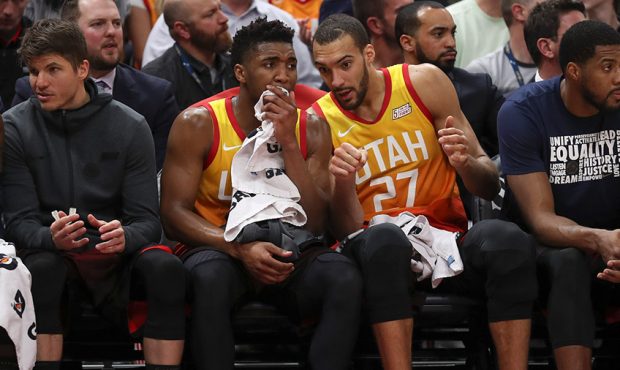
Utah Jazz guard Donovan Mitchell (45) and Utah Jazz center Rudy Gobert (27) discuss a play on the bench during the Jazz versus spurs NBA game at Vivint Smart Home Arena in Salt Lake City on Saturday, Feb. 9, 2019. (Steve Griffin, Deseret News)
(Steve Griffin, Deseret News)
SALT LAKE CITY, Utah – The NBA isn’t immune to the drastic financial impact of the coronavirus pandemic. With the likelihood that the league will cancel a significant number of games, even if it can return this season, the league will see a profound drop in revenue. Those losses will inevitably alter the NBA’s future salary cap. That could have a major impact on the Utah Jazz ability to resign Donovan Mitchell and Rudy Gobert. Could the Jazz lose Mitchell and Gobert?
According to ESPN’s Adrian Wojnarowski, if the current CBA remains unchanged, the salary cap could decline by as much as $30 million next season. As a result, the league is exploring opportunities to smooth the radical change in finances.
However, with uncertainly surrounding the future of the league’s salary structure, players with upcoming free-agency could choose to sign shorter contracts. In turn, those players could wait until there is more financial stability across the NBA to sign a long-term deal.
New on E+: ESPN talked to team executives and agents on the future economics of the NBA. What came out of it was a wide range of proposals on what adjustments they would make for 2020-21 and beyond. https://t.co/mpV4Ok7jtF
— Bobby Marks (@BobbyMarks42) May 14, 2020
As it stands, both Mitchell and Gobert are eligible for contract extensions in the summer of 2021. Both players could agree to those deals this summer.
Could The Jazz Lose Mitchell And Gobert?
Under the current CBA, NBA teams have a significant advantage of resigning players they drafted. At the end of their rookie contracts, the players enter restricted free agency. That allows the player’s current team to match any contract offer given to them. Additionally, the player’s home team can offer a larger overall contract.
In Mitchell’s case, the Jazz will likely offer the All-Star a five-year deal worth 25 percent of the cap.
Likewise, the Jazz will be able to offer Gobert a larger deal, even if they allow his current contract to expire. Unlike Mitchell, Gobert would be an unrestricted free agent in the summer of 2021. However, the Jazz are the only team that can offer Gobert a super-max extension.
Signing Rudy Gobert to supermax contract raises the @UtahJazz floor, but does it limit their ceiling? https://t.co/9gFoWUzhus
— KSL Sports (@kslsports) April 22, 2020
If the reduced salary cap extends beyond next season, both Gobert and Mitchell could opt to sign shorter deals. That would allow each player to sign a more lucrative deal after the NBA’s financial situation has fully rebounded.
While Gobert would still be eligible to sign a super-max deal with the Jazz, Mitchell could enter unrestricted free-agency sooner than planned.
Rather than signing a five-year deal with a reduced long term number, Mitchell could sign a shortened deal. Then, the star could sign his longer extension in the future to recoup the lost funds.
Commissioner Adam Silver is aware of the potential competitive disadvantage teams like the Jazz could face due to the loss in income. It’s unlikely the NBA would punish those teams with upcoming free-agents by maintaining the status quo with the salary cap.
Other Jazz Free-Agents
Mitchell and Gobert won’t be the only players affected by the NBA’s financial downturn. Jordan Clarkson, Emmanuel Mudiay, and Juwan Morgan will all be free-agents in the summer of 2020.
If the league sees a dramatic drop in salary cap for the 2020-21 season, there will be a significant reduction in free-agency money for those players.
Whenever it happens, the @UtahJazz face a critical summer.
Should the Jazz sign Rudy Gobert to a contract extension? Which players should they bring back?
I broke down what should be a busy summer for the team's front office. https://t.co/lXmN8Yc7Dr
— Ben Anderson (@BensHoops) May 7, 2020
Furthermore, there are only a handful of teams far enough under the salary this summer to be able to spend money in free agency. A drop in the salary cap would reduce that number of teams even further. If the market declines significantly, the 2020 free agency class may be asked to carry an unfair bulk of the league’s loss of revenue. Those players would be left signing smaller deals, or restricted to signing deals that function as cap exceptions.
With the Jazz owning Clarkson’s bird rights, they could exceed the NBA’s salary cap to retain his services. Mudiay and Morgan are both currently on minimum salary contracts.
Solutions
The NBA will have to work with its players to find a solution to the financial losses. Neither the franchises or the players can be expected to shoulder the burden alone. Additionally, the loss shouldn’t target one specific free-agent class that happened to occur immediately following the coronavirus outbreak.
However, the losses are nearly guaranteed to be felt leaguewide. Whether the NBA chooses to spread the losses over several seasons, the players agree to a pay decrease, the financial impact will be drastic.
Players already under guaranteed contracts with set financial figures likely won’t want to give money back. Meanwhile, players hoping to cash in the next several seasons won’t want to feel unfairly compensated in light of the pandemic.
The players and the owners will have to agree to balance the losses equally. At the same time, Silver must help design a long term market that won’t see the Jazz lose Mitchell and Gobert as a result.

